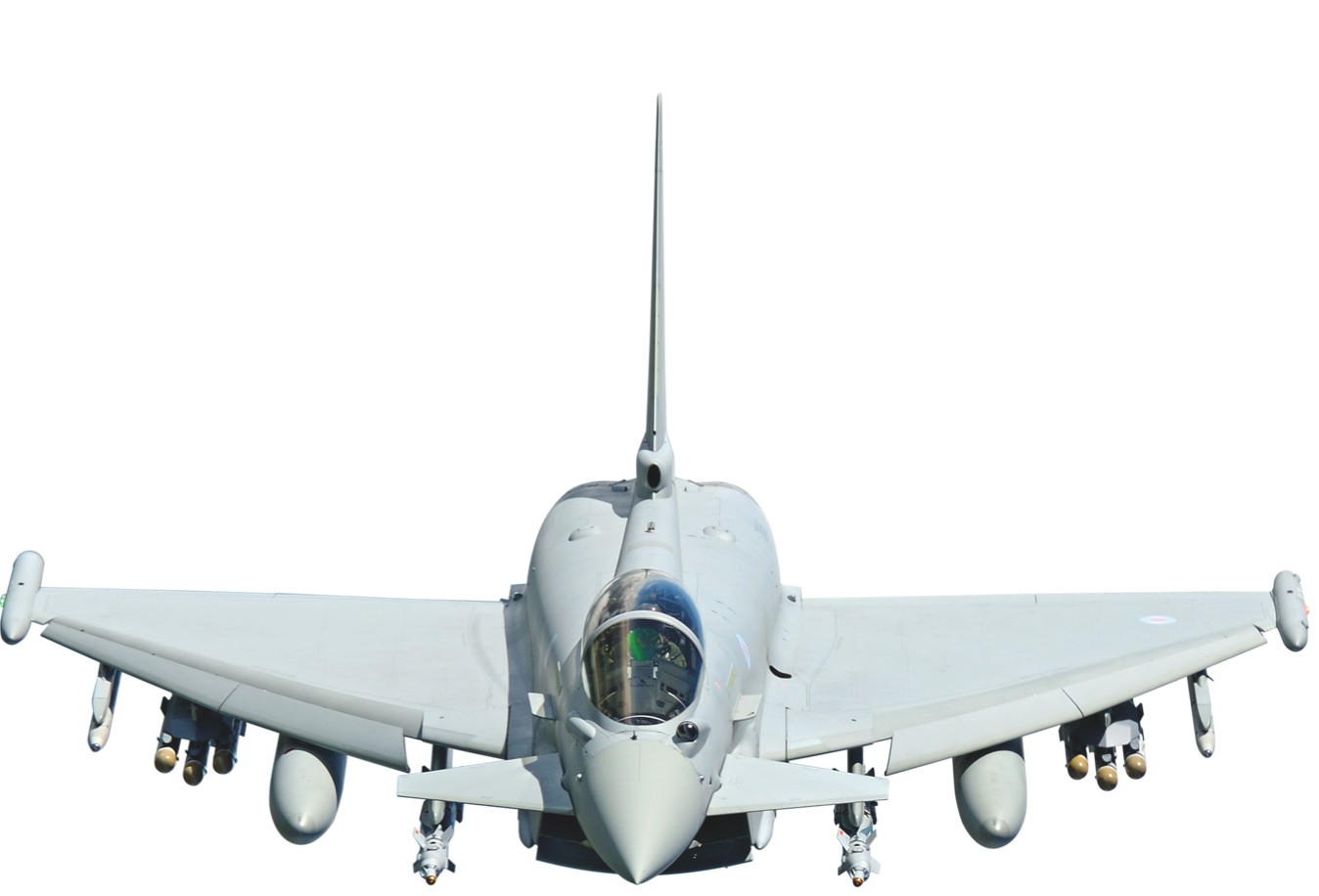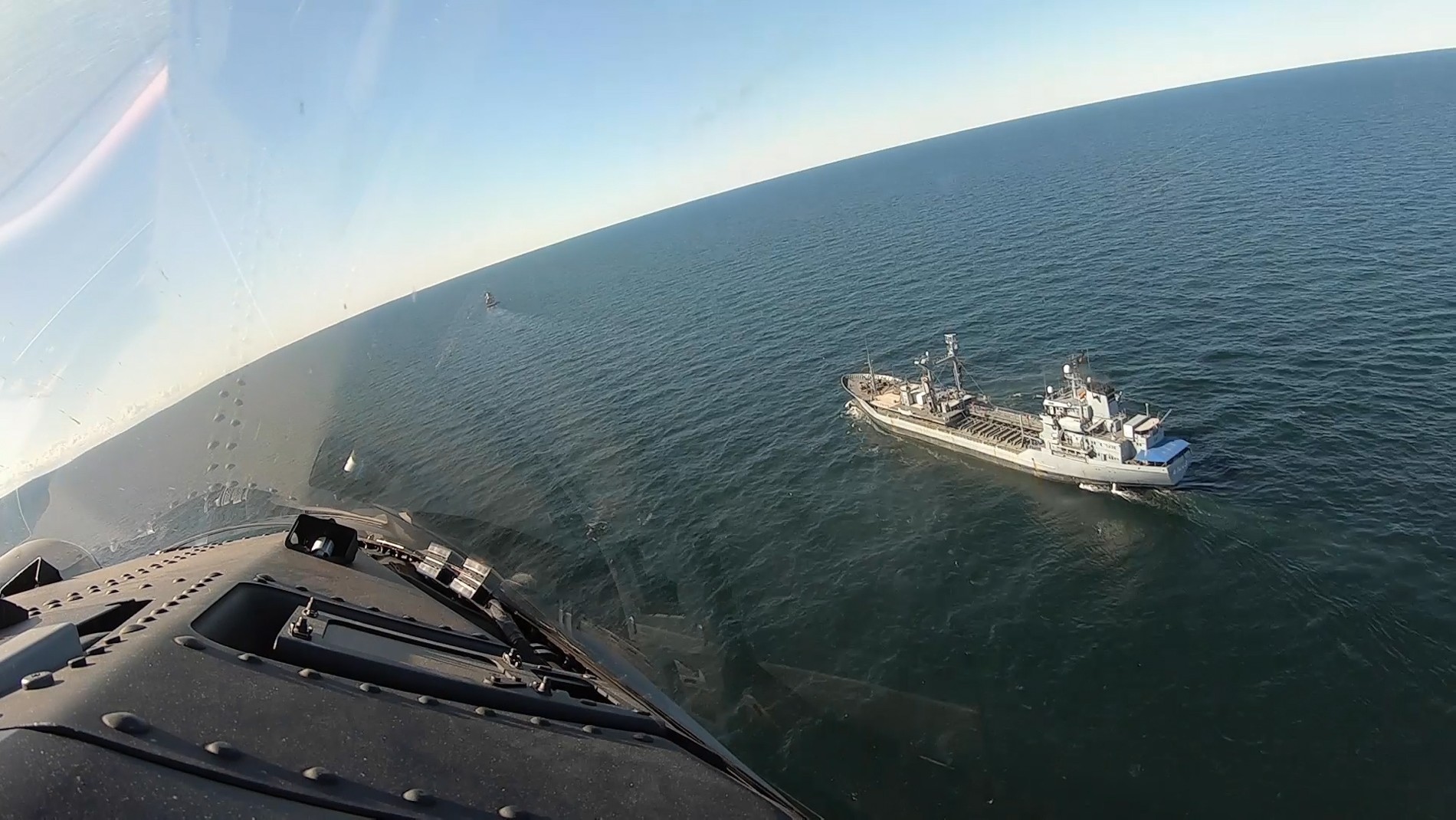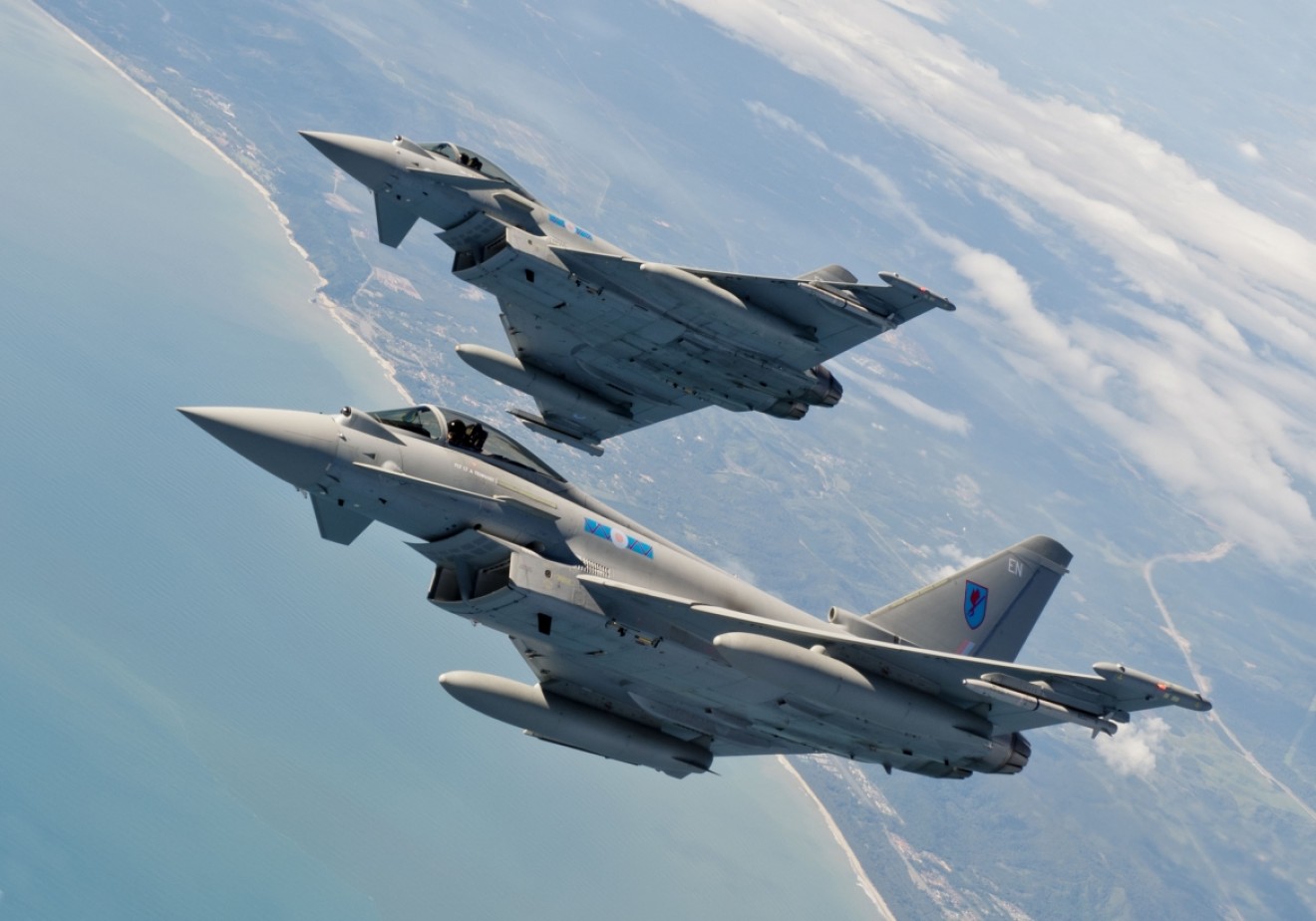Operating from the Siauliai Air Base in Lithuania between May 1st and August 31st, the 135th Expeditionary Air Wing carried out their preparation for the rotation in unfamiliar circumstances.
“The pandemic has had an impact on everyone around the globe and it affected us too,” says Wing Commander Stu Gwinnutt.

“We all self-isolated and were tested before we deployed because at that time, the UK was in the thick of the corona virus restrictions.”
The force included Eurofighter Typhoon jets and pilots from the VI Squadron normally based in RAF Lossiemouth. Wing Commander Gwinnutt said the timing of Operation AZOTIZES — the UK name of the operation that supports NATO air policing in the Baltic Sea region — was a good test of the RAF’s contingency planning.
He said: “Before we deployed, like everyone else, we were working from home and social distancing. But we used technology for briefings and carrying out all the preparation. It proved our training is proficient because when we all came together everyone knew their individual roles and everything clicked.”
When the force arrived at Siauliai, it had to cope with the constraints of working while social distancing, with everyone also required to wear masks in compliance with national guidelines. Subsequently those restrictions have been lifted.
“In the Baltic states, and in Lithuania in particular, the number of Covid-19 cases has been relatively low. The country has started to come out of the restricted phase and life is beginning to return to normal.”
Despite the unusual circumstances surrounding the launch of the deployment it’s been business as usual for the RAF, says Wing Commander Gwinnutt.
“The operation so far has been very successful. We've been involved in a number of live QRA launches and conducted the training engagements with different NATO partners that we had planned.
“Getting in, getting established and delivering on operations, has been a great distraction (from Covid-19) for us.”
Eurofighter scores for interoperability
Throughout the four-month deployment, the RAF is working with other NATO nations, notably the Spanish Air Force, who are also based at Siauliai Air Base, Lithuania, and the French Air Force, who are based in Amari in Estonia. The presence of three nations, different aircraft and a range of mission sets has meant strong interoperability has been key.

The lead RAF Pilot at Siauliai said: “We have been routinely flying alongside the Spanish detachment of F-18s and the French Air Force with the Mirage 2000. We need to be interoperable with all the different types of aircraft that are scattered across all the different nations. Of course, that doesn’t just apply in this operation, but to NATO roles in general. This detachment is no different in that respect.
“Typhoon is a very agile modern aircraft and as you’d expect it's very easy to interoperate and to operate with other jets of other nations and we’ve done that very successfully here during this detachment.”
The core activity is Baltic Air Policing and the Eurofighter role is Quick Reaction Alert (QRA). This type of activity has been stepped up following Russia's annexation of Crimea in 2014.
“That's a good example of why we're here,” says Wing Commander Gwinnutt. “NATO air policing is all about us giving a credible, layered defence of that airspace to prevent that kind of aggressive act from happening in the future.”
Successfully Joining Forces
There are two key aspects to the deployment. Beyond the air policing task, the force has the ability to carry out other training missions as well.
“It's a fantastic part of the world to be working with all three participating nations,” says the lead pilot. “We're working closely with the Spanish Air Force here in Lithuania and the training with them has gone really well. You're fighting against a different type of aircraft, which we don't get to do very often, so that's very valuable training.”
“We have carried out a lot of other missions outside of the core QRA task. We've been working on NATO maritime exercises and Counter Helicopter Training in Poland and throughout the Typhoon has performed very well.”
During the Counter Helicopter sorties, the Eurofighter Typhoons operated with UK and Polish JTAXs (Joint Terminal Attack Controllers) on the ground as well as Polish W-3 Attack Helicopters. This particular training scenario gave the Typhoons a chance to practice counter-helicopter tactics whilst defending a NATO convoy.
The RAF lead pilot said: “During the training missions there were a lot of NATO soldiers on the ground and they were under simulated attacks from an enemy helicopter. Our role was to protect the troops. It's a quite a difficult task to spot a helicopter, it requires a good radar, but luckily on the Typhoon we've got a good radar.
“So far, they've been really successful missions. It's been particularly good in terms of interoperability with the NATO forces: we’re flying in Poland, speaking with Polish air traffic control, and working with Polish helicopters. From our point of view, it's really valuable training. The feedback from the JTAXs on the ground has been good as well.”
Growing Up Together
There’s a human aspect to this activity too as Wing Commander Gwinnutt points out. “The UK commitment to NATO is obviously very important to us. But in addition to the core task, we also have the opportunity to work with our allies while we're deployed on operations.
“Normally we come together for an exercise for a week or two and we establish some relationships and learn from each other, but then we go our separate ways. In this deployment, we're here for four months, we can establish relationships, develop, share where appropriate, learn from each other and take that through.
“Those relationships will follow people through their careers. A junior pilot now will meet his opposite number in the Spanish detachment today. Then in a few years’ time, who knows where their careers will have taken them. The deployment is really important for building relationships and sharing experiences."
For pilots the experience is unrivalled
“Obviously, the core task here is QRA,” says the lead pilot. “And back in the UK we have two bases carrying out QRA 24/7 and a detachment 24/7 in the Falklands. So for us, QRA is something all pilots do routinely.
“However, coming out to somewhere like the Baltic States or Romania or Iceland, which we’ve done as well, means working in a different area and with different constraints. There's a really good benefit for us in doing that.
“At the individual level not all the pilots that have been in the Baltic before, so an operation like this represents an opportunity to do something different. That has really good training benefits because there’s exposure to different types of intercepts and so on. Already this deployment has been a very good learning experience for all of us.
“While we are here we're trying to train with as many different NATO partners and as many different assets as we can to get more from that learning experience.”
